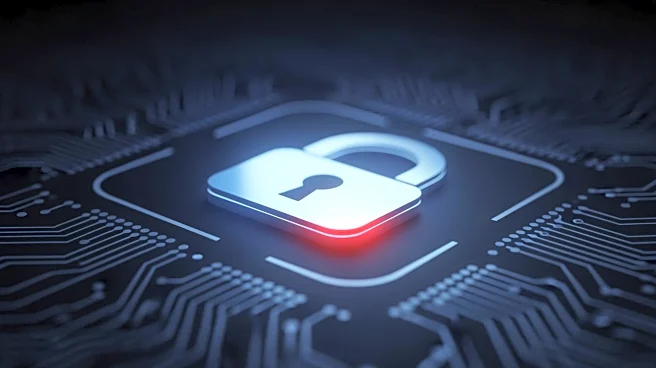What's Happening?
ABC has announced Taylor Frankie Paul as the new lead for 'The Bachelorette,' marking a significant departure from tradition by selecting a lead outside of the Bachelor alumni. The announcement was made on Alex Cooper's 'Call Her Daddy' podcast on September
10, 2025, which is an unusual move for the network. This decision is seen as an attempt to reach a broader audience, particularly younger viewers who are more engaged with social media platforms like TikTok and podcasts. The Bachelorette is set to debut in 2026, altering the franchise's typical rollout schedule. This move coincides with the premiere of 'The Secret Lives of Mormon Wives' season 3 on November 13, 2025, creating opportunities for cross-promotion.
Why It's Important?
The decision to announce the new Bachelorette via a podcast rather than traditional network channels reflects a shift in how television networks are engaging with audiences. By leveraging social media and influencer platforms, ABC is aiming to capture the attention of younger viewers who are increasingly consuming content through non-traditional means. This strategy could lead to a broader reach and increased engagement, but it also risks alienating long-time fans who are accustomed to the franchise's established traditions. The move highlights the growing importance of social media influencers in shaping television content and audience engagement.
What's Next?
As the franchise prepares for its 2026 debut, viewers can expect more influencer-led casting and surprise crossovers. The integration of Taylor Frankie Paul's MomTok audience and potential Hulu crossover could enhance streaming adjacencies and live tuning. The franchise's shift towards virality over tradition may lead to further changes in how reality TV is produced and consumed. Networks may continue to test nontraditional reveal channels, potentially reshaping the landscape of reality television.
Beyond the Headlines
The podcast-first announcement has sparked controversy among fans, with some criticizing the move as a departure from legacy viewer expectations. Supporters argue that it generates instant social buzz and wider reach. This friction highlights the evolving nature of television promotion and the balance networks must strike between tradition and innovation. The success of this strategy could influence future casting decisions and promotional tactics across the industry.















